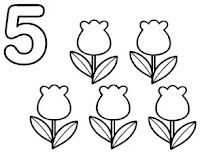 Prior to learning mathematics, it is essential for preschoolers and kindergarten students to get hold of pre-math skills. These include learning how to count numbers and knowing their proper sequence (such as 1 comes before 2, 2 before 3, and so on), learning to count everyday objects, and identify the concepts of less and more. In short, math is so much more than counting and adding for young children.
Prior to learning mathematics, it is essential for preschoolers and kindergarten students to get hold of pre-math skills. These include learning how to count numbers and knowing their proper sequence (such as 1 comes before 2, 2 before 3, and so on), learning to count everyday objects, and identify the concepts of less and more. In short, math is so much more than counting and adding for young children. The concept of mathematics, if you take time to look for them, can be found in almost all of your child’s daily routine. For example, when you kid plays with building blocks, she learns to group and classify them according to her preference. Or when she plays store, she begins to use the idea of “how much” or “how many”.
The concept of mathematics, if you take time to look for them, can be found in almost all of your child’s daily routine. For example, when you kid plays with building blocks, she learns to group and classify them according to her preference. Or when she plays store, she begins to use the idea of “how much” or “how many”.There are practically many skill areas that your child can learn and practice math, even in simple coloring activity. Yes, kids love to doodle - give them a box of crayons and watch them transform your walls into graffiti art). Of course we don’t want that, but at least we know that coloring is sure to draw their attention.
The following are links to 10 individual coloring pages in PDF format, each representing the numbers from 1 to 10 along with matching number of objects.
 |  |  |  |
 |  |  |  |
 |  |
You can print one for each day or print all of them at once (to save on electricity) but only have your child learn each number by letting her color one page at a time. Your focus is not on the colors so let your kid choose on her own – let her have some fun by experimenting.
 The important thing is that you emphasize the number as she is coloring - its appearance and pronunciation. Then as she starts to color more pages (preferably in sequence), slowly introduce the idea of quantity - the difference in the number of objects present in each page.
The important thing is that you emphasize the number as she is coloring - its appearance and pronunciation. Then as she starts to color more pages (preferably in sequence), slowly introduce the idea of quantity - the difference in the number of objects present in each page.It is not expected that your child will get everything during the first few tries. She may exhibit some "resistance" once in a while so don't push it. As long as she's having fun you can take things gradually.
With frequency, practice, and of course... your patience, you could be unlocking the next math aficionado within your child.





Amazing blog, love the contents
ReplyDeleteThanks a lot ripo
ReplyDelete